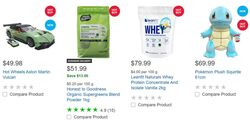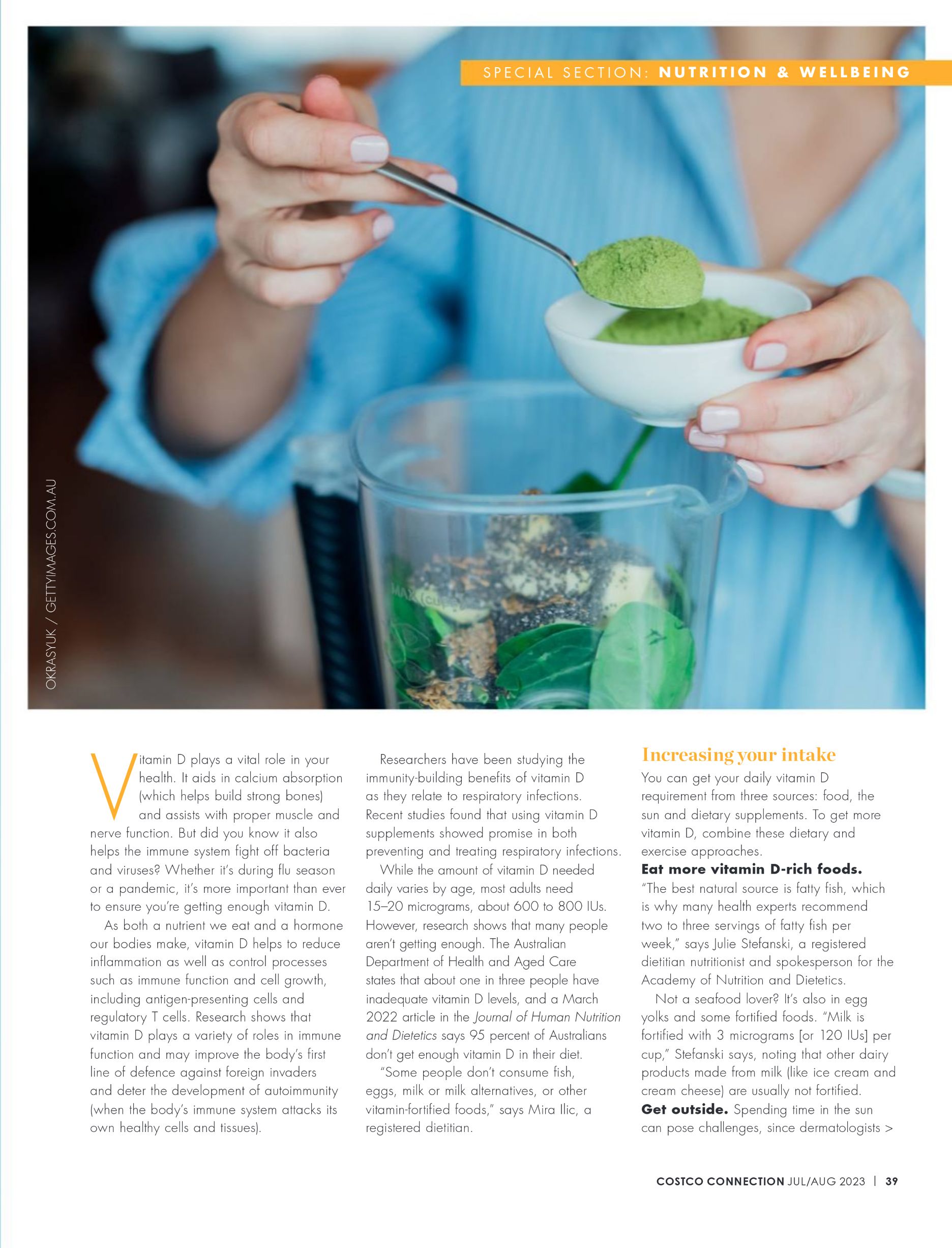













Products in this catalogue
itamin D plays a vital role in your health. It aids in calcium absorption (which helps build strong bones} and assists with proper muscle and nerve function. But did you know it also helps the immune system fight off bacteria and viruses? Whether it's during flu season or a pandemic, it's more important than ever to ensure you're getting enough vitamin D. As both a nutrient we eat and a hormone our bodies make, vitamin D helps to reduce inflammation as well as control processes such as immune function and cell growth, including antigen-presenting cells and regulatory T cells. Research shows that vitamin D plays a variety of roles in immune function and may improve the body's first line of defence against foreign invaders and deter the development of autoimmunity (when the body's immune system attacks its own healthy cells and tissues) SPECIAL SECTION: NUTRITION & WELLBEING Researchers have been studying the immunity-building benefits of vitamin D as they relate to respiratory infections Recent studies found that using vitamin D supplements showed promise in both preventing and treating respiratory infections. While the amount of vitamin D needed daily varies by age, most adults need 15-20 micrograms, about 600 to 800 |Us. However, research shows that many people aren't getting enough. The Australian Department of Health and Aged Care states that about one in three people have inadequate vitamin D levels, and a March 2022 article in the Journal of Human Nutrition and Dietetics says 95 percent of Australians don't get enough vitamin D in their diet. “Some people don't consume fish, eggs, milk or milk alternatives, or other vitamin-fortified foods,” says Mira llic, a registered dietitian Increasing your intake You can get your daily vitamin D requirement from three sources: food, the sun and dietary supplements. To get more vitamin D, combine these dietary and exercise approaches. Eat more vitamin D-rich foods. “The best natural source is fatty fish, which is why many health experts recommend two to three servings of fatty fish per week,” says Julie Stefanski, a registered dietitian nutritionist and spokesperson for the Academy of Nutrition and Dietetics. Not a seafood lover? It's also in egg yolks and some fortified foods. “Milk is fortified with 3 micrograms [or 120 IUs] per cup," Stefanski says, noting that other dairy products made from milk (like ice cream and cream cheese) are usually not fortified. Get outside. Spending time in the sun can pose challenges, since dermatologists > COSTCO CONNECTION JUL/AUG 2023 | 39
| Name | Details |
|---|